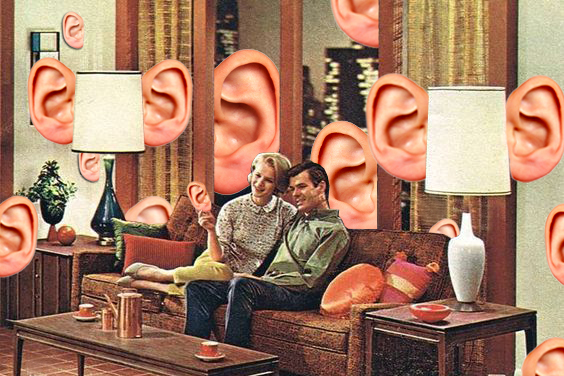- Privacy: Apple, Google and Amazon listen: is it safe to speak with a voice assistant?
- Facebook.The alms that want to pay you for recording your voice
The traditional listening techniques that have been so effective for Hollywood spy movie characters, or, more in our homeland, the ex-commissioner Commissioner Villarejo are somewhat outdated: the norm today is that those devices that you have paid for with your own money, 'prick' your house as if it were the hotel room of James Bond himself.
According to a report published by the University of the Northeast of the United States, smart speakers, as well as other connected devices that we have at home today are activated an average of 19 times a day to listen.
Those responsible for this situation are virtual voice assistants . Whether Alexa, Siri, Cortana or the Google Assistant, everyone records what surrounds them when they hear specific words that sound similar to the formulas with which they are activated, which can be "Hey, Siri" or "Alexa" or "Ok , Google".
The study is alarming, but the problem is the result of inconsistencies rather than intentionality. None of the speakers studied are listening for 24 hours a day, but when listening to background conversations, they turn on, listen and record what happens.
These conversations have been obtained from television series of different kinds, from the Gilmore Girls to Grey's Anatomy, through the West Side of the White House, Narcos or Big Bang Theory, among others.
According to the results, the 'most sensitive' microphones are those of Apple's HomePod and Windows 10 computers, which employ Siri and Cortana as assistants, respectively. And far from turning on and off in a few moments, most devices remained active and recording more than 6 seconds , exceeding, in the case of Amazon's Echo Dot, the 20 seconds. The maximum time this speaker has recorded in the University tests was 43 seconds.
Given that the study has been conducted in English , the results may have been slightly different when Spanish, but all the attendees investigated have been adapted to Spanish for more than a year and work perfectly in our language.
However, the concern for the operation of these virtual assistants is growing , since in recent years they have made the leap from mobile phones to smart speakers and that are gradually being integrated into all kinds of devices, be they televisions, vacuum cleaners or refrigerators
The authorities have already taken action on the matter, with mixed results. Although it has been achieved that companies such as Amazon recognize the listeners made through these speakers, there is still no legislation that protects citizens in such concrete situations in which they seem to be activated.
All major technology companies have been involved in controversies regarding their smart speakers, either because of the recordings they make or because, until it was discovered, there were employees who reviewed the recordings that these devices made for review. Since there was no pre-filter of the content, these reviewers could hear delicate conversations from users.
Shortly after knowing this information, all companies have suspended their programs of 'human' checks of the recordings of these assistants, Amazon being the only exception, which has chosen to leave it to users if their sound files are reviewed or do not.
Failures in the operation of record review mechanisms have also been common, since last year, they discovered that Amazon had mistakenly sent private conversations to users who had requested the recording of their devices. When requesting the archive of recordings, some people had received foreign conversations from other Alexa users.
There are few experts who have shouted in the sky at the attitude of these large technology companies regarding the recording of conversations and sounds, which they need to improve the service of their products, but that imply a violation of the privacy of who use them Thus, a former Google manager has encouraged to turn off these speakers when visitors are received, as conversations of others could be recorded without their express authorization.
According to the criteria of The Trust Project
Know moreInnovation Put a chatbot in your company: this is the latest innovation of companies in the United States
Technology Google Maps turns 15: new features and renewed design
The next world James Bridle: "With technology we know less about the world around us"

